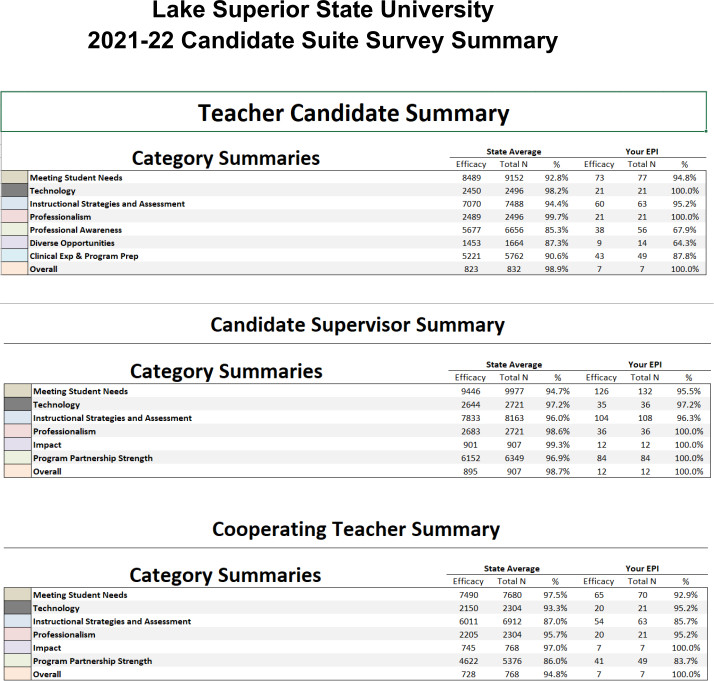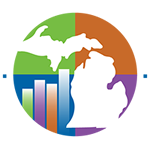Teacher Education Annual Accreditation Reporting
CAEP Accreditation Status and Reviewed Programs
The Council for the Accreditation of Educator Preparation (CAEP) has fully accredited the LSSU teacher preparation programs listed below with the exception of the elementary teaching programs with grade band concentrations. The elementary grade band concentrations were created since the last accreditation visit from CAEP in response to new Michigan standards for preparing teachers and the new programs will be evaluated by CAEP in the future. The next CAEP visit will be in 2025.
Current LSSU teacher education programs:
- Elementary Teaching with grade band concentrations in birth through kindergarten, prekindergarten through third grade, and third through sixth grade. Future and current teachers may also earn a minor in special education learning disabilities.
- Secondary Teaching in English, math, integrated science, social studies, and chemistry. Future and current teachers may also earn a minor in special education learning disabilities.
- Programs currently being taught out: Elementary Education with concentrations in math and language arts, special education, or early childhood; English Language Arts with elementary teaching, Math with elementary teaching.
- See Academic Catalog – Lake Superior State University (lssu.edu) for more information about programs.
CAEP Accountability Measures for 2021-2022 Academic Year
Measure 1: Completer Effectiveness (Component R4.1)
- A case study of completer impacts has begun. The first results were available in summer 2022.
- Effectiveness ratings provided by public school administrators in Michigan for the 2021-2022 academic year were available for 26 completers who graduated in the past five years. Four (15%) were rated highly effective and 22 (85%) were rated effective. Thus, of completers rated, 100% were rated as effective or highly effective.
- The Michigan Department of Education provides an aggregated summary of their student teacher surveys, which are completed by the student teacher, university supervisor, and cooperating teacher. The data for 2021-2022 student teachers is below:

Measure 2: Satisfaction of employers and stakeholder involvement (Components R4.2, R5.3)
- All completers over the past three years were retained in the same position for their second school year as a teacher.
- The case study, which is underway, includes an interview with the principal of each completer studied. Early data is available.
Measure 3: Candidate Competency at Completion (Component R3.3)
- Action research projects are completed during student teaching. For the 2021-2022 academic year, ten student teachers completed action research projects that demonstrated an impact on student learning and development. The presentations of the action research projects at the end of student teaching indicate that as completers the candidates will positively impact P-12 learning and development.
- Program learning outcomes are assessed in student teaching. A majority of student teachers achieved level three or four (out of four) for all program outcomes in 2021-2022.
- The Student Teacher Observation Tool (STOT) is the quantitative tool used for the final student teaching report. On the STOT scale, 3.0 is proficient and 2.0 is emerging. Our goal is for every candidate to be at a proficient level at the end of student teaching. The 2021-2022 completers averaged 3.03 with nearly every student teacher scoring 2.8 or higher as an average for the ten STOT standards.
Measure 4: Ability of Completers to be Hired
- There were eleven completers in 2021-2022 and we have received confirmation that six are currently employed in a teaching position as of Spring 2023. This is not a final number and this section will be updated as our records are updated. Typically, the employment for graduates has been 100% for those who choose to pursue a teaching career; we have no indication that this pattern has changed.

